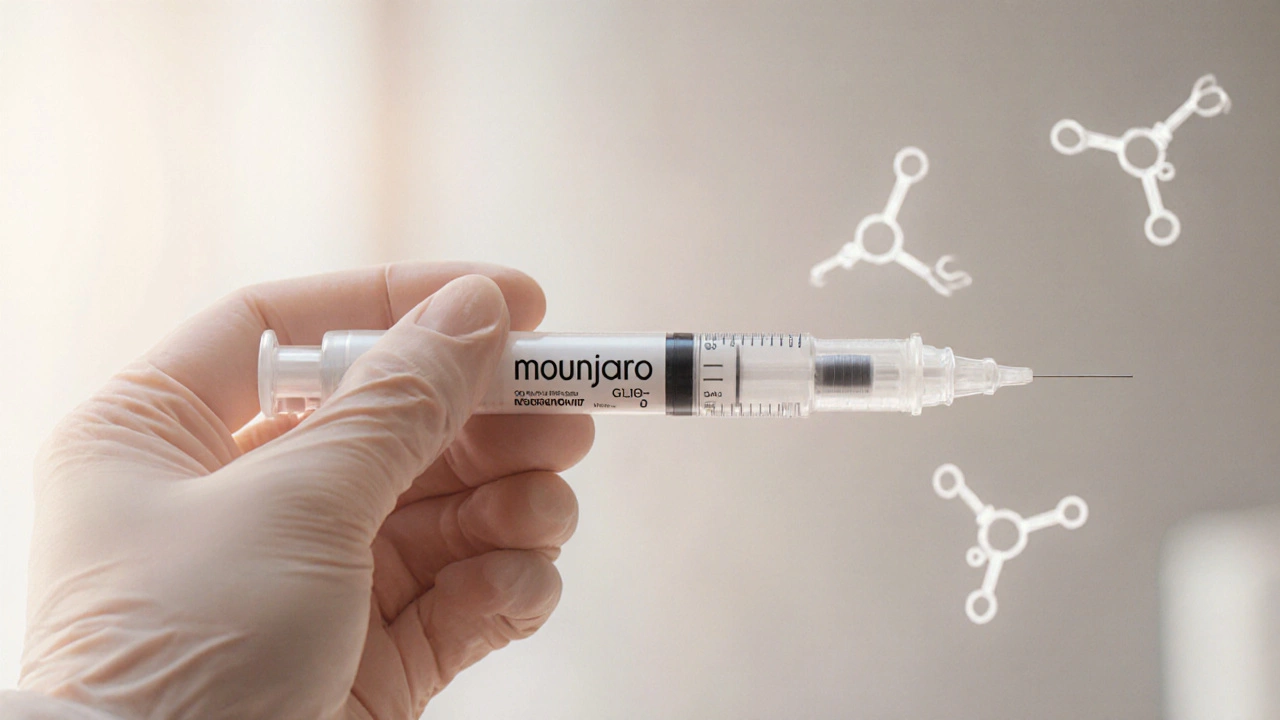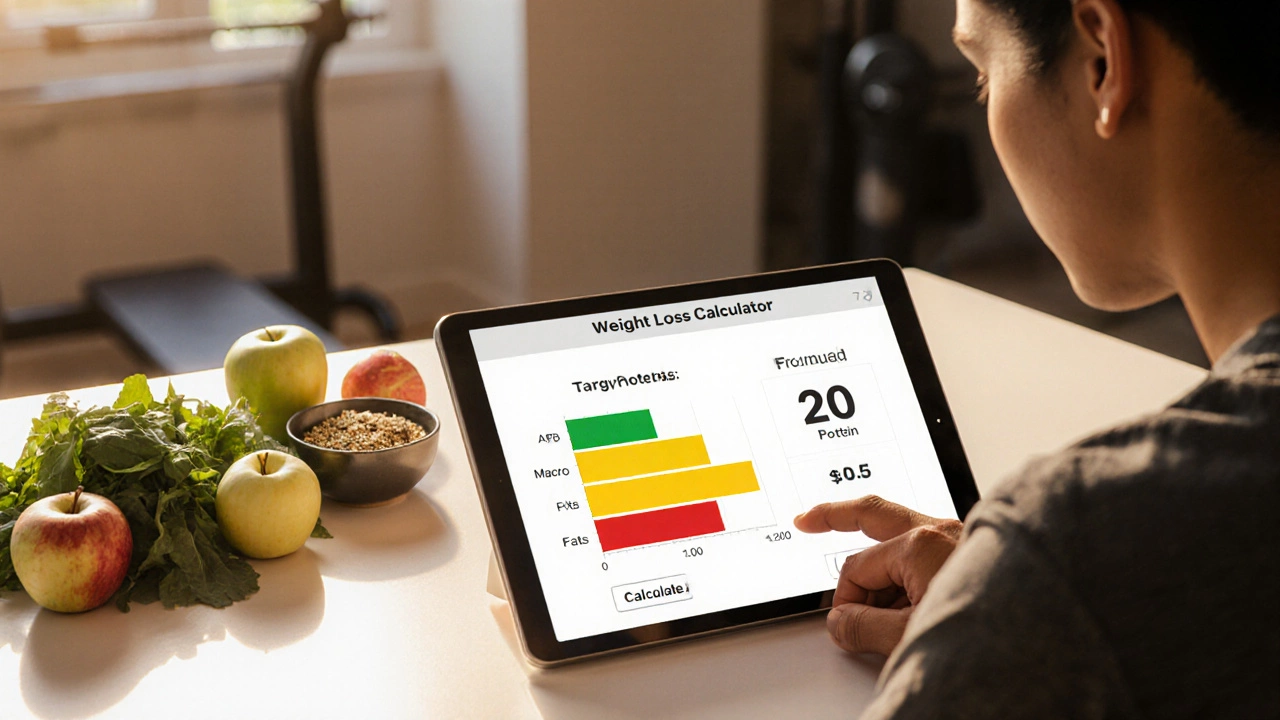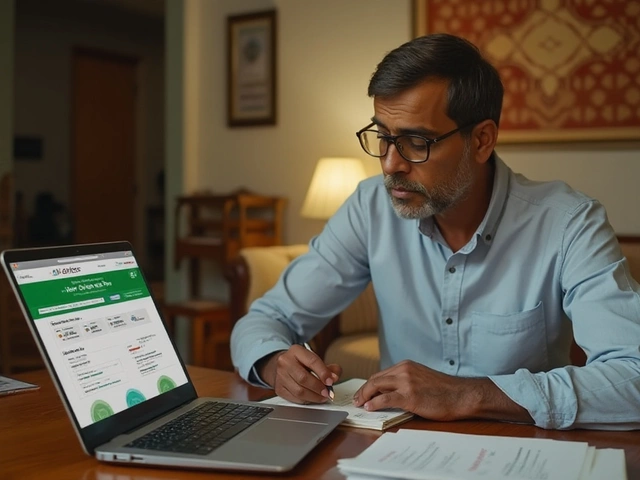Weight Loss: Real Tips, Safe Meds, and What to Watch Out For
Trying to drop a few kilos can feel like a maze of fads, pills, and confusing advice. What if you could cut through the noise and focus on what actually works, without risking your health? Below you’ll find straightforward habits, honest talk about popular weight‑loss drugs, and key points about insurance coverage – all written for everyday readers in India.
Quick Lifestyle Changes That Actually Work
First, forget the need for extreme diets. Small, consistent moves often beat big, unsustainable overhauls. Start the day with a protein‑rich breakfast – 30 grams of egg, paneer, or Greek yogurt can keep cravings at bay for hours. Pair that with a brisk 30‑minute walk after lunch; walking isn’t just easy, it also targets stubborn belly fat by boosting metabolism.
Next, hydrate smartly. Swapping sugary drinks for water cuts empty calories and supports digestion. If plain water feels boring, add a splash of lemon or cucumber. Also, watch your portion sizes. Using a smaller plate tricks your brain into thinking you’re eating more, which can naturally lower calorie intake without hunger spikes.
Strength training is another low‑key hero. Two sessions a week of bodyweight squats, push‑ups, or resistance bands can preserve muscle while you lose fat. More muscle means higher resting calories burned, so you keep the weight off longer.
Weight‑Loss Medications: Benefits, Risks, and Insurance
Prescription drugs like Ozempic, Wegovy, and Mounjaro have grabbed headlines for rapid results. They work by mimicking hormones that control appetite, but they’re not a free ticket to a new body. Side effects can include nausea, low blood sugar, or, in rare cases, interaction with other medicines – something Toxic Medicine Insights flags as a real safety concern.
If you’re considering a GLP‑1 drug, talk to a qualified doctor first. They’ll check your medical history, kidney function, and any existing medications to avoid dangerous combos. Remember, these drugs are meant for people with obesity or diabetes, not just anyone looking for a shortcut.
Cost is a big hurdle, but many insurance plans now list weight‑loss meds under “obesity management” coverage. Look for policies that include prescription savings cards or reimbursements for approved drugs. However, read the fine print: some plans only cover a portion of the price, and you may need a documented diagnosis to qualify.
Supplements are another gray area. Popular “fat burners” often contain caffeine, green tea extract, or garcinia cambogia. While these can boost energy, they rarely cause substantial weight loss on their own. Worse, some products hide undisclosed stimulants that could raise heart rate or interact with blood pressure meds. Always verify the ingredient list and choose reputable brands.
Bottom line: a balanced diet, regular movement, and professional guidance beat miracle pills every time. Use medication only when a doctor prescribes it, and make sure your insurance plan supports it before you start.
Ready to start? Pick one simple habit from the list – maybe a morning protein boost or a daily walk – and stick with it for two weeks. Observe how you feel, adjust as needed, and keep building from there. Weight loss isn’t a sprint; it’s a series of steady, safe steps toward a healthier you.

Can I Lose 30 Pounds on Metformin? What Really Happens When You Use It for Weight Loss
Metformin can help with weight loss if you have insulin resistance or prediabetes, but losing 30 pounds requires more than just the pill. Learn how it works, who benefits, and what else you need to do.

Is there a pill form of Ozempic? What you need to know about oral semaglutide for weight loss
Yes, there's a pill form of Ozempic called oral semaglutide. It's as effective as the injection for weight loss, requires daily dosing, and is available in India with a prescription. Learn how it works, costs, side effects, and where to get it.

Mounjaro for Weight Loss: Prescription Guidelines & Risks
Explore whether Mounjaro can be prescribed for weight loss, its dosing, benefits, risks, and how Indian clinics use it to help patients lose weight safely.

Effective Ways to Lose Belly Fat in Just 2 Weeks
Learn a practical 2‑week plan to lose belly fat fast with diet tweaks, HIIT workouts, sleep, stress control, and hydration for visible results.

How to Lose 20 Pounds in 3 Months - Simple, Safe Plan
A practical, step‑by‑step guide to safely lose 20 pounds in three months with calorie targets, macro basics, workout plans, and tips to avoid common pitfalls.

Did Kelly Clarkson Use Ozempic for Weight Loss? The Real Story Behind the Headlines
Curious if Kelly Clarkson took Ozempic for her weight loss transformation? Get the facts, debunk the rumors, and learn about Ozempic's role in celebrity health stories.

Kelly Clarkson Weight Loss: How She Lost Weight Fast and What Really Worked
Explore how Kelly Clarkson lost weight so fast, uncover her exact strategies, the truth behind her method, and what you can apply to your own weight loss journey.

Kelly Clarkson's Weight Loss Pill: The Real Story Behind Her Transformation
Curious about what pill Kelly Clarkson used for her weight loss transformation? We break down the facts, myths, and what science says about celebrity weight loss medications in 2025.

Does Walking Burn Belly Fat? Practical Facts and Real Tips for Losing Stubborn Fat
Curious if walking can truly help burn that stubborn belly fat? Find out how walking works, what science says, and get smart, real-world tips on using walking to target fat loss.

Wegovy Weight Loss: How Much Can You Realistically Lose in 3 Months?
Curious about Wegovy? Find out how much weight you can drop in 3 months, what impacts results, and tips for real-world success with this popular medication.

Best Supplement for Losing Weight: What Really Works?
Trying to find the best supplement for weight loss isn’t easy with so many options claiming quick results. This article breaks down what actually works and what’s just hype, using real science and practical tips. Learn about popular ingredients, what to watch out for, and how to spot real results when you’re on your weight loss journey. We’ll also dig into what your doctor might recommend at a medical weight loss clinic. If you want to lose weight safely and effectively, start here.

Can You Really Get Wegovy for $25? What Weight Loss Clinics Aren’t Telling You
Wegovy, a popular prescription for weight loss, is plastered everywhere with the promise of $25 deals—but is it legit? This article breaks down what’s real and what’s hype about those tempting low-price offers. It gets into the fine print about insurance, savings cards, and who actually qualifies. Expect straightforward tips to avoid hidden costs and make the process less confusing. If you’re thinking about starting Wegovy through a weight loss clinic, this guide will help you know what to expect.

IVF Gender Selection Cost: What You Need to Know
Mar, 26 2025

How to Qualify for Ozempic at an Online Pharmacy
Jan, 24 2025

What Are the 5 Basic Steps of Skin Care?
Dec, 2 2025

